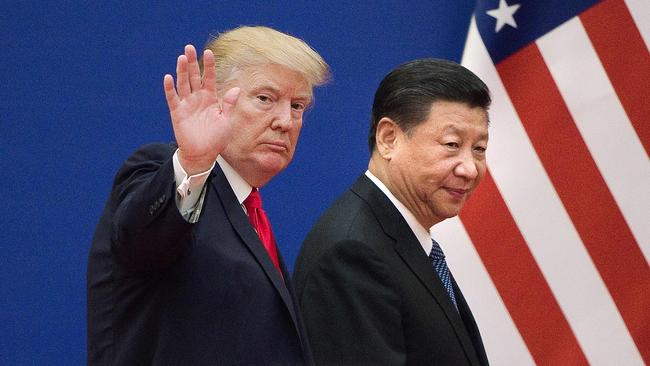
It guarantees there will be two competing hi-tech cyber communications systems, one dominated by the US and its allies, the other by China.
FBI chief Christopher Wray said Huawei had repeatedly refused to respect US law.
US authorities have also levied a range of charges against Huawei chief financial officer Meng Wanzhou, on bail in Canada as she awaits the outcome of a US extradition request. Huawei has also been accused of stealing specific intellectual property from US firms and paying bonuses to employees who steal secrets from Western companies.
Within hours, Beijing hit back at the US, saying it was using state power to smear and attack specific Chinese enterprises.
All this unfolded as a Chinese delegation arrived in the US to discuss their trade dispute.
This action, though profoundly consequential, does not yet presage a new Cold War.
Rather it shows the US-China relationship will be characterised by both co-operation and open strategic competition, and this competition will increasingly have a hard edge.
Every accused person or entity has a right to the presumption of innocence, but it must be assumed US authorities have very substantial information for them to lay charges of this kind. Part of Beijing’s response to the arrest of Meng has been to jail two Canadians on seemingly ridiculous charges and to temporarily detain a number of others. Sources also suggest that the arrest of Australian blogger Yang Hengjun could be in retaliation for Canberra’s forthright support for Canada’s demand that Beijing release its citizens.
The full implications of these US criminal charges will roll on for many months and are unpredictable. However, a few things are clear.
While it is quite possible that Donald Trump may ultimately come to some trade deal with China’s Xi Jinping to avoid escalating tariffs, the hostility between the two nations over the theft of intellectual property and the security risk posed by Chinese companies participating in critical Western infrastructure is now a permanent feature of the geopolitical landscape.
Chinese companies will no longer be given wide latitude in their operations in sensitive areas of Western economies.
It is also clear that, as Australia’s Foreign Investment Review Board has concluded, there is now no longer any meaningful distinction at the political and security level between Chinese-state owned enterprises and notionally private Chinese companies.
Huawei is not owned by the Chinese government but Beijing has made it clear that all Chinese companies must serve its strategic interests. This has profound implications for the future of Chinese investment in Australia, and indeed in all democratic nations.
It comes as the Chinese economy is slowing and Malaysia has just pulled out of a signature Chinese Belt and Roads program investment.
Trump and Xi are feeling out the balance between co-operation and competition in relations between their two giant nations. Yesterday, that balance shifted sharply.







The decision by US judicial authorities to prosecute China’s Huawei for alleged theft of intellectual property, obstruction of justice, money laundering and breaches of sanctions on Iran, is a dramatic escalation of tensions between the world’s two most powerful economies.